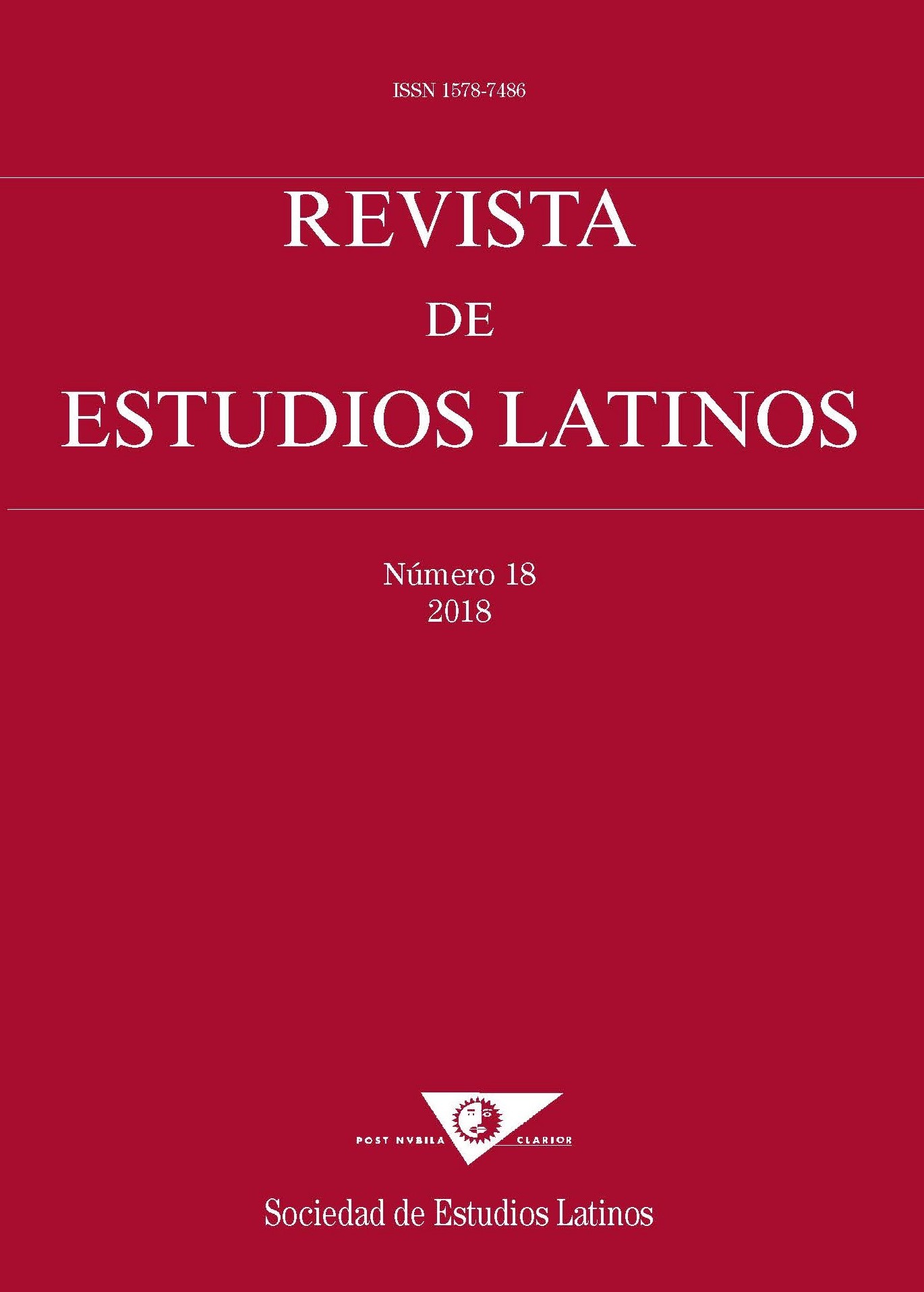The concern for ueritas in the Dialogues of Gregory the Great
DOI:
https://doi.org/10.23808/rel.v18i0.82803Keywords:
Gregory the Great; hagiography; Dialogues; Vitae; ueritas.Abstract
In the genre of lives of the saints, it is common for hagiographers to attest to the veracity of their stories, as per the well-known historiographical principle of ueritas. Yet such concern is much greater in the Dialogues of Gregory the Great than it is in his predecessors’ works. This paper analyzes different resources used by the author to convince his readers of the truthfulness of the narrative: the confirmation of the existence of thaumaturgical saints in ancient, modern, and contemporary Italy; the defense of the use of secondary sources of information; the mention of those who witnessed each and every one of the miracles; the demonstration of the witnesses’ reliability (given their nature: noble or ecclesiastical witnesses, recent witnesses, living witnesses, eyewitnesses, etc.); and the use of multiple strategies developed to provide a certain impression of truthfulness, such as discarding possible natural explanations for the prodigies, presenting material evidence, or drawing comparisons with similar biblical miracles.
Downloads
References
Bartelink, G. J. M. (1994): Athanase d’Alexandrie, Vie d’Antoine. Introduction, texte critique, traduction, notes et index, París, Éd. du Cerf.
Bartelink, G. J. M. (1995): «Pope Gregory the Great’s Knowledge of Greek», en Cavadini, J. C. (ed.), Gregory the Great. A Symposium, Notre Dame, University of Notre Dame Press, 117-136.
Boesch Gajano, S. (1979a): «Narratio e expositio nei Dialoghi di Gregorio Magno», Bullettino dell’Istituto Storico Italiano per el Medio Evo 88, 1-33.
Boesch Gajano, S. (1979b): «Dislivelli culturali e mediazioni ecclesiastiche nei Dialogi di Gregorio Magno», Quaderni Storici 41, 398-415.
Boesch Gajano, S. (1980): «La proposta agiografica dei Dialogi di Gregorio Magno», StudMed 21, 623-664.
Boglioni, P. (1974): «Miracle et nature chez Grégoire le Grand», Cahiers d’Études Médievales 1, 11-102.
Canivet, P. & Leroy-Molinghen, A. (1977): Théodoret de Cyr. Histoire des moines de Syrie. Introduction, texte critique, traduction et notes, París, Éd. du Cerf. (2ª reimp. 2013).
Codoñer, C. (1987): Sulpicio Severo. Obras completas. Estudio preliminar, traducción y notas, Madrid, Tecnos.
Cracco, G. (1977): «Uomini di Dio e uomini di Chiesa nell’alto Medioevo (per una reinterpretazione dei Dialogi di Gregorio Magno)», Richerche di storia sociale e religiosa 12, 163-202.
Cracco Ruggini, L. (1981): «Il miracolo nella cultura del tardo impero: concetto e funzione», en Patlagean, E. & Riche, P. (eds.), Hagiographie, cultures et sociétés (IVe-XIIe siècles). Actes du colloque organisé à Nanterre et à Paris (2-5 mai 1979), París, Etudes Augustiniennes, 161-204.
Cremascoli, G. (2014): «Sul significato dei Dialogi di Gregorio Magno», en Leonardi,C. (ed.), Gregorio Magno e le origini dell’Europa, Florencia, Sismel-Edizioni del Galluzzo, 237-245.
Dudden, H. F. (1905): Gregory the Great. His Place in History and Thought, Londres, Longmans, Green.
Fontaine, J. (1967-1969): Sulpice Sévère. Vie de saint Martin, París, Éd. du Cerf.
Gaiffier, B. de (1966): «Miracles bibliques et vies de saints», NRTh 88, 376-385.
Galán Sánchez, P. J. (2010): Vida de san Benito y otras historias de santos y demonios. Diálogos. Introducción, traducción y notas, Madrid, Trotta.
Galán Sánchez, P. J. (2012): «La capitulación y la titulación de los capítulos en los Diálogos de Gregorio Magno», CFC(L) 32/2, 271-297.
García de la Fuente, O. (1991): «Reminiscencias bíblicas en el libro I de los Diálogos de Gregorio Magno», ExcPhilol 1/1, 221-234.
González Iglesias, J. A. (1992): «El exemplum en los Diálogos de Sulpicio Severo», Emerita 60/1, 71-89.
González Iglesias, J. A. (2001): Estudio del género del diálogo en autores latinos tardíos, Salamanca, Universidad de Salamanca.
Mohrmann, Ch. (1975): Vita di Martino. Vita di Ilarione. In Memoria di Paola. Introduzione, Milán, Fondazione Lorenzo Valla.
Moorhead, J. A. (2002): «The figure of the deacon Peter in the Dialogues of Gregory the Great», Augustinianum 42/2, 469-479.
Petersen, J. (1976): «Did Gregory the Great Know Greek?», en Baker, D. (ed.) The Orthodox Churches and the West, Oxford, Basil Blackwell, 121-134.
Pricoco, S. & Simonetti, M. (2005-2006): Gregorio Magno. Storie di santi e di diavoli (Dialoghi). Introduzione e commento. Testo critico e traduzione, Milán, Fondazione Lorenzo Valla.
Rupérez Granados, P. (2013): Atanasio. Vida de Antonio. Introducción, traducción y notas, Madrid, Editorial Ciudad Nueva (1ª ed. 1995).
Sánchez Salor, E. (1991): «Historiografía latino-cristiana. Principios», ExcPhilol 1/2, 779-796.
Sánchez Salor, E. (2014): Vida de los Padres del Jura. Edición crítica y traducción, Madrid, CSIC.
Tateo, F. (1965): «La struttura dei dialoghi di Gregorio Magno», VetChr 2, 101-127.
Teja, R. (2008): Historias de los monjes de Siria. Teodoreto de Ciro. Introducción, traducción y notas, Madrid, Trotta.
Uytfanghe, M. van (1986): «Scepticisme doctrinal au seuil du moyen âge? Les objections du diacre Pierre dans les Dialogues de Grégoire le Grand», en Fontaine, J. et alii (eds.) Grégoire le Grand. Colloques internationaux du CNRS (Chantilly 15-19 sept. 1982), París, CNRS, 315-326.
Velázquez, I. (2008): Vidas de los santos padres de Mérida. Introducción, traducción y notas, Madrid, Trotta.
Vitale Brovarone, A. (1974): «La forma narrativa dei Dialoghi di Gregorio Magno: problema storico-letterari», AAT 108, 95-173.
Vogüé, A. de & Antin, P. (1978-1980): Gregoire le Grand. Dialogues, París, Éd. du Cerf.
Vogüé, A. de (1999) «Moines, clercs et laïcs dans les Dialogues de Grégoire le Grand», Revue Mabillon 71, 9-35.
Downloads
Published
How to Cite
Issue
Section
License
Copyright (c) 2018 Revista de Estudios Latinos

This work is licensed under a Creative Commons Attribution-NonCommercial-NoDerivatives 4.0 International License.
The originals published in the printed and electronic editions of this journal are the property of the Revista de Estudios Latinos and can be circulated as long as the original source and authorship is made clear in any reproduction, full or partial, of the same, and as long as this is not done for commercial purposes.






